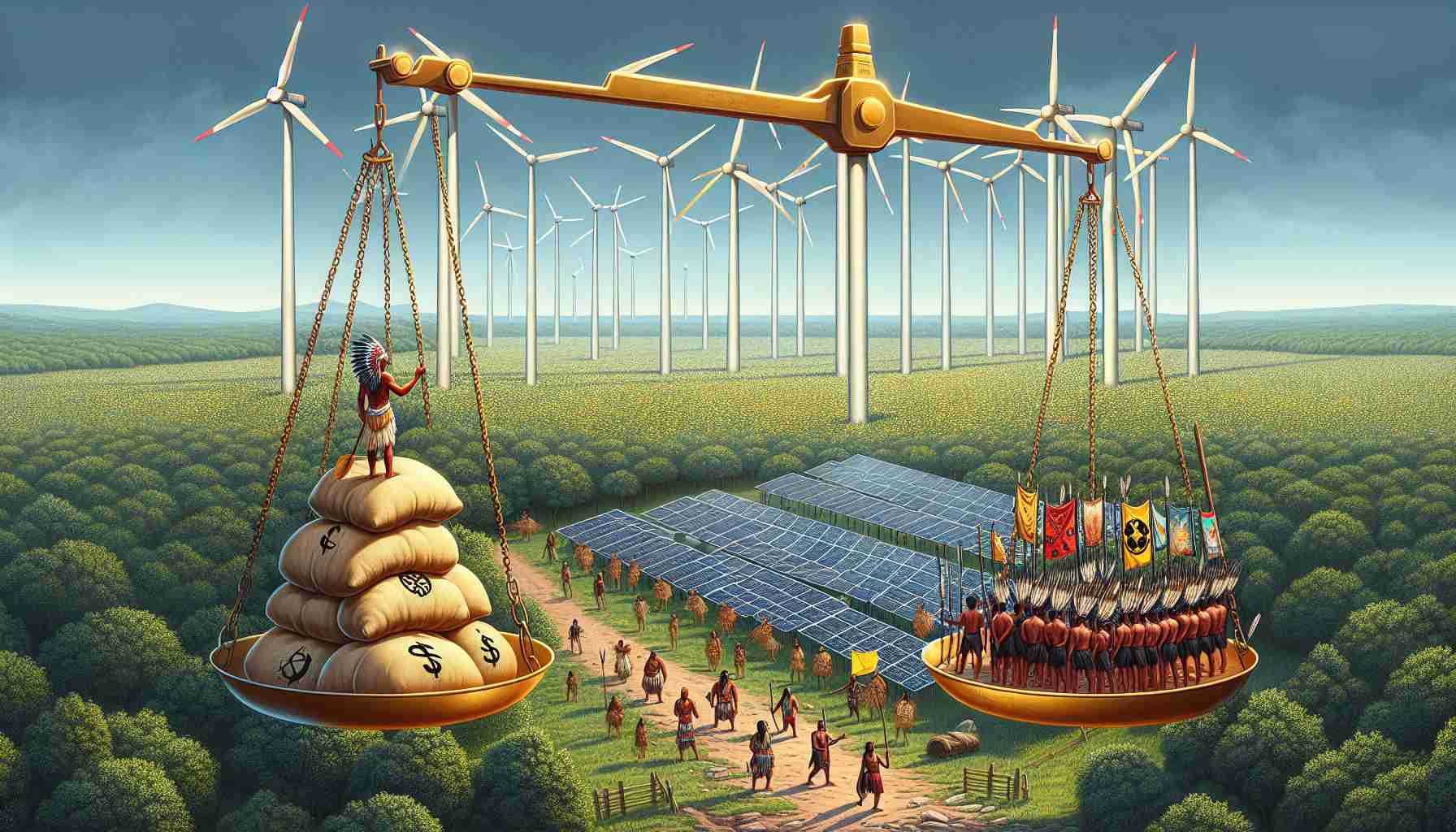
The Controversial Horse Heaven Hills Project
In a bold initiative to ramp up clean energy production, Washington Governor Jay Inslee recently gave the green light to the Horse Heaven Hills project, a grand endeavor that proposes to harness wind and solar power in central Washington. However, this ambitious project has sparked significant backlash, particularly from the Confederated Bands and Tribes of the Yakama Nation, who are taking legal action against the state.
Initially proposed in 2021 by Scout Clean Energy, the project aims to span 72,500 acres and produce enough electricity to power approximately 1 million homes. Unfortunately, its planned construction lies over vital Yakama Nation ceremonial sites, threatening both cultural heritage and local wildlife, including the threatened ferruginous hawk.
In a bid for compromise, Washington’s energy-permitting body expressed concerns regarding the initial proposal’s impact on native species, recommending drastic reductions to the project. Despite these efforts, Governor Inslee ultimately rejected this advice, prioritizing energy capacity over environmental safeguards.
Following Inslee’s decision, the Yakama Nation has petitioned the court, arguing the process neglected critical environmental and cultural considerations. Their stance emphasizes the risk of permanent damage to the area’s sacred landscape. As legal battles unfold, the future of the Horse Heaven Hills project hangs in the balance, raising questions about the intersection of clean energy development and tribal rights.
Horse Heaven Hills Project: Balancing Clean Energy and Cultural Heritage
Overview of the Horse Heaven Hills Project
The Horse Heaven Hills project, approved by Washington Governor Jay Inslee, is ambitious in its aim to significantly increase renewable energy production in the state. Proposed by Scout Clean Energy, the project encompasses approximately 72,500 acres of land and is projected to generate enough electricity to power around 1 million homes. This initiative represents a significant step forward in Washington’s clean energy goals, particularly in the utilization of wind and solar resources.
Key Features of the Project
– Energy Capacity: The Horse Heaven Hills project is anticipated to contribute substantial renewable energy to the Pacific Northwest grid, assisting in Washington’s targets for reducing carbon emissions.
– Infrastructure: The project involves the construction of wind turbines and solar panels, along with necessary infrastructure for energy distribution.
– Job Creation: During the construction and operational phases, the project is expected to create numerous jobs, fostering economic growth in the region.
Pros and Cons
Pros
– Renewable Energy Production: This project aligns with global initiatives to transition to greener energy sources, aiming for a decrease in reliance on fossil fuels.
– Economic Boost: Job opportunities and increased local and state revenue through energy production and potential taxes could significantly benefit the Washington economy.
Cons
– Cultural Impact: The project threatens important ceremonial sites of the Confederated Bands and Tribes of the Yakama Nation, raising concerns about the preservation of cultural heritage.
– Environmental Concerns: There are risks to local wildlife, particularly for species like the ferruginous hawk, which could be disrupted by construction activities.
Legal and Environmental Implications
The controversy surrounding the Horse Heaven Hills project has led to legal challenges spearheaded by the Yakama Nation. Their lawsuit argues that the environmental impact assessment failed to adequately address the project’s effects on both sacred lands and local ecosystems. This legal battle illustrates the complex relationship between renewable energy development and indigenous rights, particularly in areas with deep historical and cultural significance.
Trends and Innovations in Clean Energy
As the demand for clean energy continues to grow, projects like Horse Heaven Hills are becoming increasingly prevalent across the U.S. Innovations in solar and wind technologies are making these projects more efficient and cost-effective. However, the scrutiny placed on such projects highlights a growing trend toward more integrated approaches that consider environmental justice alongside energy production.
Market Analysis and Future Predictions
The future of the Horse Heaven Hills project remains uncertain as it navigates legal and environmental challenges. The interplay between clean energy projects and indigenous rights will likely shape future initiatives. As stakeholders assess the balance needed to achieve energy goals without compromising cultural heritage, a more collaborative approach may emerge in the renewable energy sector.
Conclusion
The Horse Heaven Hills project embodies the ongoing struggle to reconcile clean energy demands with the protection of cultural and environmental integrity. As Washington pushes forward on its clean energy agenda, the outcome of this project may set important precedents for similar endeavors across the country. For more information on energy policies and projects, visit Energy.gov.



